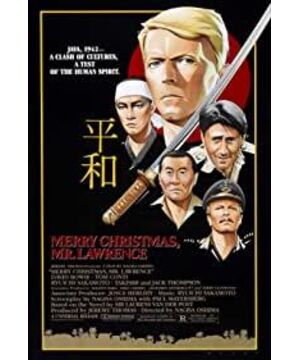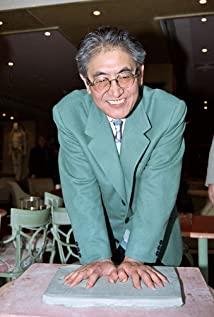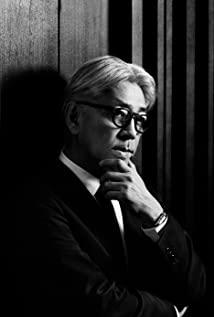The first movie I saw at the 2021 Shanghai Film Festival. It's amazing to be able to make such a delicate yet uniquely styled film in 1983! Great! Great! The costume props and stage beauty pushed the robes and camaraderie to a climax, but Takeshi Kitano, who was in the strong theatrical performance, cast on the screen and really saw me in the seat, and there was really nice music. , and in the anti-war movie, all I see is anger
The background of this film is under World War II, and I will talk about what kind of reflection Japan was in after World War II, and there was this opportunity to start the film, Japan was defeated in 1945, the United States monopolized Japan and began to domesticate it, October 16, 1945 Issued a circular "Notice on the Elimination of Anti-Democratic Movies" to promote the "freedom", "democracy" and "equality" of the United States. The authorities set up two agencies, the Civil Information and Rducational Section, the CIE Civil Review Detachment, and the CCD (Civil Censorship Detachment) to manage them. The script was translated into English for the CIE to review. Since then, 600 popular Hollywood films have filled the film gap in Japan until the "San Francisco Peace Treaty" was signed in 1951. The United States withdrew from Japan, and Japan subsequently established the "film ethics management committee", and today "Yin Lun" has always been there.
The film is adapted from Laurens van der Post's The Seed and the Sower (1963) There is no Chinese translation, I will read the English original to correct my opinion, Mr. Laurens was born in South Africa and devoted his life to anti-discrimination and anti-racial struggle and I just want to say Speaking of equality in the eyes of the Japanese, how equality learned from the United States is embodied in this post-war self-reflection film.
I don't like spoilers, so I'll just say a few clips to prove my idea. The chronological order of clips has been disrupted for the sake of not spoiling. The story mainly takes place in a prisoner of war camp in Java, Indonesia. The author of the same name, Lawrence It is a Japanese-savvy person who is proficient in Japanese and even knows the rules of fasting, and Kitano Takeshi, who can't speak English, is a guard sergeant who can't speak English. Together, the two act as a slow-release agent for Japanese Bushido and Western culture throughout the film.
Shooting Jack for the first time, the half-kneeling Japanese soldier and Jack with Jesus-like arms outstretched, facing the enemy is the Lord's forgiveness for you, which made me believe for the first time that this is an anti-war movie
Because of the practice of kendo, the medical prisoner of war was disturbed to rest, and the prisoner complained to the guard for a report.
Lawrence joked that being a prisoner is also a kind of experience and wealth. Even as a prisoner, Sergeant Yuan regarded being a prisoner as a huge shame because he dedicated his life to the emperor after visiting the shrine. When the subtitles display a line of the shrine, the number of frames is significantly reduced, and it will pass in the blink of an eye)
And how the Japanese army really treated the prisoners, I will come to them one by one:
The Bataan Death March is the most commendable way the Japanese army treats prisoners.
After the U.S. surrender of the garrison in Bataan in 1942, 78,000 prisoners of war from the U.S.-Philippine coalition were forced to walk through the rainforest to a concentration camp 104 kilometers away. According to records, during this march, “many American and Filipino soldiers who participated in the march themselves were He was wounded during the battle, but was still forced to march in extremely hot weather. The Japanese did not allow the prisoners of war to help each other, or even let them drink water. When the prisoners of war could not bear it any longer, they ran to a nearby stream to fetch water. They would be shot or beheaded . There were even some Japanese soldiers who deliberately drove cars or tanks over prisoners of war ." It was a way for the Japanese to have fun. During the entire march, all prisoners of war infected with dysentery were buried alive. Survivor Lester Tenney, a lifelong professor emeritus in Arizona, said that on the third day of the march, they got the Japanese army's consent to drink the muddy water soaked by buffaloes, but the Japanese army suddenly repented, and then identified who had touched the water based on the water stains and killed them all, surviving. The interviewer recalled that the Japanese army was playing a game of killing, allowing the prisoners of war to kill each other and bury the prisoners who could not move alive. The airtight carriage that could hold 10 cows needed to be filled with 100 people, and they arrived at their destination five hours later, but there were only dead people in the middle of the carriage. Only the ventilated areas around the carriage could not be suffocated to death. After six days on the road, due to illness, starvation, and thirst, suffocation reduced 20% of the population, and 15,000 died.
Life in the prisoner of war camp is not much different from that in the movie, just living in a bamboo hut and doing high-intensity labor at the same time for two months to reduce the number of people by 35%, and 26,000 people died. 100 grams of black bread per person a day is enough to eat.
Because of the limited space in the prisoner of war camp, almost ten prisoners of war were detained in a 10-square-meter place, and all eating, drinking, and lhasa were carried out in the cell. Only about 10 minutes of "air time" every day is actually to pour out your own excrement. Some soldiers of the Japanese army often played a "killing game" with several prisoners of war. Many soldiers were tortured to incontinence or even insane.
The Japanese wanted to study the function of the various organs of the Americans. They would use surgery to remove the corresponding organs of the prisoners of war, and then observe their reactions and survival time. Most of the prisoners of war who underwent the experiment died in extreme pain. The experiment continued until the end of World War II, causing great harm to American prisoners of war. Let the Japanese military doctors find the pathogenic bacteria and turn the war around.
And one point in the movie is very realistic. There is no beard. I thought it was very strange when I watched the movie. The prisoner has a mirror and a blade to clean his face every day. How is it possible? I was wrong, they don't have beards, they're starving for hormones so they don't have many beards.
Shi Ye, played by Ichiryu Sakamoto, issued an order in English in the prisoner of war camp, watching the gathering of death penalty requests and handing over the prisoner of war camp experts were all rejected? ? ?
The prisoner of war hospital asked the former sergeant to increase the dietary requirements. The former sergeant said that you and I both eat the same? ? ?
Adjutant Shiye assassinated Jack in the solitary cell privately, first stabbed the Japanese guard to death, and then immediately cut his abdomen when he was discovered that the assassination failed? ? ?
In the movie trailer, star David Bowie mentioned that Japan is for violence. I don't understand their motivation. He said that I was excited to see violence in the script, but I didn't want it to happen to me. When the prisoner of war camp saw Jack with only bones, he was still in love with one eye. I thought his eyes were blind. Japan is good at describing delicate and silent feelings, but can it happen in such a time and space context? Isn't this glorifying war or something, isn't this justifying one's own war? Once upon a time, the little red girl on Schindler's list with stacked bones made me shudder, and this movie is disgusting every minute, living in a glass bungalow hospital, eating macaroons, killing people on the hospital list No Asian, Chinese. Because it is an honor for a Chinese soldier to change to a Western soldier, and it is a matter of course. I was out of anger in the theater, but the bright applause at the end made me dizzy. Am I too extreme, or the audience has become accustomed to it? The film of the master is proud and weeps bitterly. I wrote this film review with doubts, and the more I compared the pictures and the endless evidence, it was really hard to read, which also strengthened my determination to write this film review and open a page in the sins of Japanese military militarism.
Is the unreasonable part of the movie because of his different time and space background? Why try to beautify the conditions of white prisoners of war, and set off the stalwart Japanese soldiers by selecting taller Japanese? Why does the plane take a bird's-eye view to show Japan's heroic appearance among Westerners, what a picture of equality, harmony and freedom.
But why was the radio found in an aluminum kettle, a prohibited item, and ended up being smuggled into the hospital by Chinese prisoners of war? And the casual killing of Chinese soldiers is over? ? ?
In the movie, Shiye buried Jack alive as a chief officer and presided over the wrongdoing ceremony. Everyone saw it, and as a war criminal, Corporal Yuan killed innocent Chinese soldiers. This is a fact presented in the movie, but you and I both think it is right in the play? ? ?
In the live interview he finally mentioned:
Yes, how beautiful this movie looks, is it really an anti-war movie? Or are they excusing themselves of their own guilt for Japanese militarism? In the post-match interview, he also mentioned that this is Japan's reflection after the war. His reflections include but are not limited to Japan's preferential treatment of Western prisoners and love for Western prisoners. Inside and outside, everything is based on the premise of freedom, fairness and justice. , I am willing to give my life in Japan and I will not touch a hair of Westerners, no! Under the leadership of Fukuzawa Yukichi, Japan left Asia and joined Europe long before World War II.
Head portrait of Japan's largest face value of 10,000 yen - Fukuzawa Yukichi
I was surprised when Lawrence, who starred in the documentary, mentioned that most of the script was imaginary. This is contrary to Laurens' point of view. I did not know that Mr. Laurens, who has devoted his life to fighting against discrimination and race, has personal experience as a Japanese speaker. How did the captives write this book?
Will Japan treat Lawrence after his death like Barr, the Indian representative of the Tokyo trial? (One thought that the Tokyo Trial was unfair and wrote hundreds of thousands of words. Although he admitted that the Japanese army carried out massacres, he also believed that it was just a trial of the winners against the losers, and finally sentenced all eleven Class A war criminals are not guilty, and today the Indian Barta is enshrined in the Yasukuni Sacrificial Society next to the Hosei University, which only produces Japanese politicians. A sacrificial society? I don't know.
The real end of the prisoner of war camp is that the Japanese prisoner of war camps need to be sent to various fortresses to carry out projects, and the prisoners are dispatched to the mainland, puppet Manchuria, Thailand, and the casualties are unknown.
Every year, some U.S. troops in active duty will set off on March 28 with a heavy load and arrive at the 112-kilometer destination on April 9, using this method to commemorate the Bataan Death March. After the "San Francisco Treaty", Japan and the United States signed the U.S.-Japan Security Treaty, symbolically restoring sovereignty, so that the United States occupied it forever. In August 1955, Japanese Foreign Minister Aoi Shigemitsu visited the United States and granted funds to Class A war criminals Kishi Nobuyuki through the United States, which is Shinzo Abe's Grandpa took the lead in contacting Japanese conservatives and formed the current ruling party, the Liberal Democratic Party.
As an island country, Japan imports all its oil and gas resources, and Japan is in the midst of an earthquake around the Pacific Ocean. One-tenth of the earth's earthquakes patronize it. A small country with few people is very afraid of being liquidated because of its war responsibilities. Japan is not anti-war, Japan is anti-war If you lose the war, you are against your own defeat; Japan is not not good at making movies, but it is capable of making movies. He wants to slowly change history and is afraid of our revenge, so he is opposed to war. The Japanese Ministry of Foreign Affairs' annual budget of 90 billion for the Chinese network is just like nuclear waste water, and it spends 15.9 billion to publicize the issue of nuclear waste water, so that it can be reasonably discharged into the sea.
Thinking of the recent rise of women's rights, I have to mention that Japanese politicians never admit that Japan forced 300,000 comfort women, but said that the number of 300,000 and the number of victims of the Nanjing Massacre can be so coincidental, which is enough to show that the Nanjing Massacre and the comfort women incident are the same. What China and South Korea faked are unfounded and slandered the reputation of the Japanese government. Such actions have also led to Japan's low political participation and extremely low voter turnout, but he has never changed his heart to change history.
In 2015, the slandering of the comfort women issue led to the bullying of overseas Japanese children and the filing of a lawsuit to restore their reputation? ? ?
While the story continues to be written, I have learned to forgive, but I will never forget.
The film review ends with this line by Ichiryu Sakamoto.
View more about Merry Christmas Mr. Lawrence reviews










